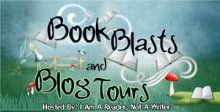By Kirsten Mortensen, Author of Dark Chemistry
Like a lot of authors, I’ve experimented with voice. I’ve written in the first person. I’ve written in the third person. And I’ve even toyed with the second person—breaking the 20th Century rule of “no authorial intrusion.” Because hey, I’m a rebel. Rules are made to be broken!
So I thought I’d share a bit about what I’ve learned about voice.
Some of my insights are similar to what you’ve probably read elsewhere, or know from experimenting with voice yourself. Certain genres lend themselves naturally to first person POV, for example. I can’t imagine classic chick lit (think Bridget Jones's Diary) in anything other than first person. Ditto for hard-boiled crime fiction, like Raymond Chandler’s Philip Marlowe novels.
As a writer, first person voice can be a kick as a literary device. There’s the fun of the Unreliable Narrator, for example. The person telling the story inevitably filters events through her assumptions or prejudices. She may even lie outright to protect someone else, or to show herself in a positive light.
A person narrating a story is also on a journey. He or she is discovering things, assembling puzzle pieces. Who committed the murder? Is the handsome boss an unreliable flirt or a modern day prince? With first person, we readers get to ride along as the narrator solves these kinds of questions.
First person POV can also help make a reader’s experience more sympathetic. I learned this the hard way. When I first drafted one of my novels (When Libby Met the Fairies), I wrote it in the first person. But later, I second-guessed myself and re-wrote the book in third person voice. It was a newbie mistake: I should have trusted my original impulse, but I didn’t. Then, when I published the novel, I discovered (to my horror) that scenarios I thought were humorous came across, to readers, as humiliating.
You know the final scene in Brigit Jones, where she runs out into the street in her tights to chase down Mark Darcy? Imagine if that scene were done in such a way that, instead of cheering her on, you got angry at Brigit for debasing herself. Chasing after a man that way! Doesn’t she have any self-respect?
That’s what I managed to do with Libby! So perhaps, one of these days, I’ll revise that novel again and let Libby tell the story with her voice. But even if I don’t, it’s still a lesson that I learned, the hard way, about the power of POV.
Writing in the third person gives a writer a completely different set of tools. My latest novel, Dark Chemistry, is written in the third person. That let me shift points of view among several characters, including two bad guys, a heroine, a hero, and the hero’s friend and co-worker. I found that this let me add a lot of richness and depth to the story. One of my bad guys is very very creepy—telling part of the story from his point of view let me bring that out. Using third person also let me show how my heroine, Haley Dubose, evolved and matured during the course of the novel. She starts out spoiled and shallow, but learns to value relationships, love, and commitment more than clubbing and designer clothes. I had a lot of fun with that, and decided to use third person in my next novel as well.
So now it’s your turn. If you’re a writer, what have you discovered by experimenting with voice and POV? As a reader, do you enjoy first person or third person more—and why?
A woman's worst nightmare
Drugged by something...that makes her think she's fallen in love.
All Haley Dubose has ever known is beaches and malls, clubs and cocktail dresses.But now her father is dead.
And if she wants to inherit her father's fortune, she has to leave sunny Southern California
for a backwater little town near Syracuse, New York. She has to run RMB, the multimillion dollar
chemical company her father founded. And she has to run it well.
Keep RMB on track, and she'll be rich. Grow it, and she'll be even richer. But mess it up, and her inheritance will shrink away before she gets a chance to spend a dime.
Donavon Todde is her true love. But is it too late?
He's RMB's head of sales – and the more Donavon sees of Haley, the more he's smitten.Sure, she comes across at first as naïve and superficial. But Donavon knew Haley's father. He can see the man's better qualities stirring to life in her eyes. And Donavon senses something else: Haley's father left her a legacy more important than money. He left her the chance to discover her true self.
Donavon has demons of his own.
He's reeling from a heartbreak that's taking far too long to heal. But he's captivated by this blond Californian, and not only because of her beauty. It's chemistry. They're right for each other. But has Donavon waited too long to woo this woman of his dreams? Because to his horror, his beautiful Haley falls under another spell. Gerad's spell.
A web of evil.
Gerad Picket was second-in-command at RMB when Haley's father was alive. And with Haley on the scene, he's in charge of her training. But there are things about RMB that Gerad doesn't want Haley to know.And he must control her. Any way he can.
Romantic suspense for your Kindle
Will Haley realize that her feelings are not her TRUE feelings?Does Donavon have the strength left to fight for the woman he loves?
Will the two of them uncover Gerad's plot to use RMB pheromones to enslave the world?
And even if they do – can they stop it?
Buy Now @ Amazon & Smashwords
Genre – Romantic suspense
Rating – PG-13
More details about the author
Website http://kirstenmortensen.com/
















